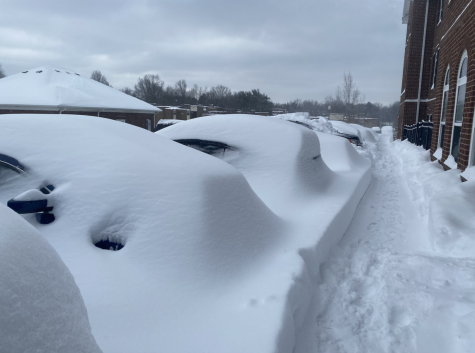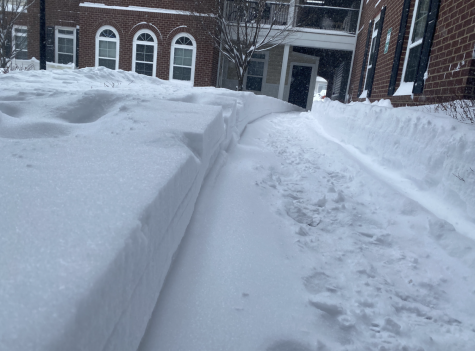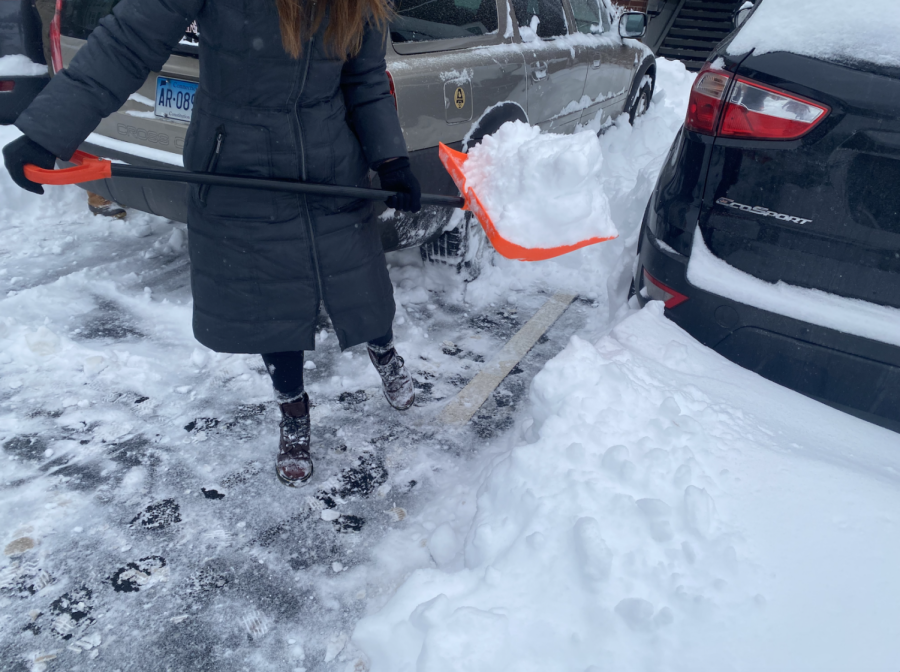Kent Winter Weather Advisory and how to stay safe this winter
Tara McFadden shovels the parking lot on Monday, January 17, 2022, to clear snow from around the vehicles at The Province apartment complex in Kent, OH.
Winter Storm Izzy reached Northeast Ohio on Sunday evening, leaving several local areas covered in snow.
According to the National Weather Service, Hiram reported 15 inches of snowfall, while Mogadore reported 12 inches and Stow reported 16 inches.
Kent State campus is also covered in snow, leaving the university to make some arrangements.
Kent State Advisory
For January 17: Kent State issued an advisory closing the DeWeese Health Center on Kent Campus for Jan. 17, 2022. It says, “Anyone in need of health services should contact the 24-7 nursing hotline at 330-672-2326.”
For January 18: All Kent campuses will be closed Tuesday, Jan. 18 according to the advisory. All classes offered online will continue as usual. In-person classes will not meet on campus.
Instructors teaching in person have the option to conduct an online session or require asynchronous work. The university recommends students reach out to the instructor for specific details about class operations.

How to stay safe during winter weather conditions
When traveling outdoors during winter weather, the National Weather Service recommends to exercise extreme caution to avoid frostbite, hypothermia and other cold weather health issues, which can occur quickly.
Stay inside during severe cold. If going out is necessary, ensure every body part is covered, including ears, nose, toes and fingers. Dress in layers and seek shelter from the wind as much as possible.
In the event of frostbite, the National Weather Service recommends finding shelter as soon as possible. Until you can get indoors:
- Don’t rub or massage cold body parts.
- Put your hands in your armpits.
- Hold onto another person or animal.
- Drink warm liquids.
- Put on extra layers of clothes, blankets, etc.
- Remove rings, watches, and any other tight jewelry or related items.
Once indoors:
- Do not walk on a frostbitten foot. You could cause more damage.
- Get in a warm (NOT hot) bath and wrap your face and ears in a moist, warm (NOT hot) towel.
- Do not get near a hot stove or heater or use a heating pad, hot water bottle, or a hair dryer. You may burn yourself before feeling returns.
- Frostbitten skin will become red and swollen and feel like it is on fire. You may develop blisters. Do not break the blisters. It could cause scarring and infection.
- If your skin turns blue or gray, is very swollen, blistered or feels hard and numb even under the surface, go to a hospital as soon as possible.

It is possible to get hypothermia without getting frostbite, and according to the Mayo Clinic, those with hypothermia aren’t always aware of their symptoms.
“Hypothermia, which can be a serious health condition, occurs when your core body temperature drops below 95 degrees Fahrenheit,” states the Kent State Advisory website. “Get medical attention immediately. If you feel cold and sluggish, or are having trouble thinking clearly, see your doctor immediately or go to the nearest emergency room.”
Alexandria Manthey is the TV2 News Director. Contact them at [email protected].



